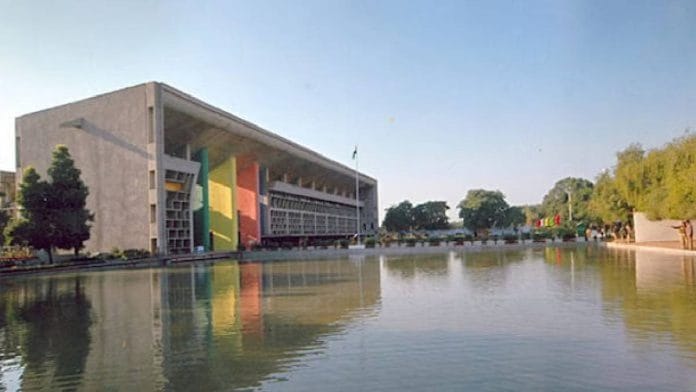Gurugram: A 35-year-old man from Panchkula in Haryana is waging a poignant court battle in search of his identity—the man who sired him.
The man he asserts to be his biological father and whom he referred to as “papa” while growing up contests the claim.
The matter, earlier in the trial court, is now in the Punjab and Haryana High Court, which last week upheld orders for a paternity test in the case and ruled that the right to know one’s parentage takes precedence over the right to privacy of the man who is claimed to be the father.
“The right of privacy, as such, cannot override the right of the child,” Justice Archana Puri said in her order, accessed by ThePrint.
In her 18-page judgment, Justice Puri considered photographs and testimonies in the case and upheld a November 2015 order of a Panchkula trial court that had directed that a DNA test be conducted to resolve the matter.
She, however, stated that nobody can be compelled to provide a blood sample and overruled a contentious aspect of the trial court’s verdict that permitted police help in obtaining the sample. “No one can be forced to provide a sample of blood for examination,” she said.
The high court, where the man claimed to be the father had challenged the lower court’s order, also stated that if he refused to undergo the DNA test, the court would be free to draw its inferences along with other evidence on record.
Also Read: Do your duty — The D-word that Goa really doesn’t want to hear in a marriage
Family tale & court view
The man’s suit in court, initially a maintenance plea filed as a minor through his mother, traces events back to 1988 when his alleged father came to reside as a tenant in his mother’s home. The two soon started living together as husband and wife and a child was born in 1990.
The man submitted in court that he lived with his mother and alleged father until the year 2000. The adult plaintiff claimed to have a distinct memory of his childhood—addressing the defendant (man claimed to be the father) as “papa” and being together as a family. Black-and-white photographs accepted in court showed the image of a smiling, happy family. His mother too supported her son’s claims in court.
The alleged father, however, had a different tale to tell. He claimed in court that the plaintiff was not his son but a “stranger” and that the plaintiff’s mother was married to another man during the time of his birth and divorced him only in 1994.
This brings into light a legal presumption under Section 112 of the Indian Evidence Act, which considers a child born within a marriage as the lawful child of the husband.
“Any child born during the continuance of a valid marriage between their mother and any man, or within 280 days after the dissolution of that marriage (with the mother remaining unmarried), shall be considered conclusive proof that the child is the legitimate son or daughter of that man (married to the mother),” states Section 112.
To prove otherwise, the plaintiff would have to demonstrate that his mother’s former husband had no access to her at the time of conception—a tall task without definitive proof.
The HC underlined that the extraordinary aspect of the case was the plaintiff himself—a mature adult who sought to know his identity and parentage.
“The child, now a major, has come forward to claim paternity,” Justice Puri wrote, taking attention away from legal technicality and pointing to a person’s desire for truth.
The court weighed the rights of both parties—the plaintiff’s inalienable right to know his roots and the defendant’s right to dignity and privacy, as claimed by him while arguing that he cannot be made to undergo DNA testing—and affirmed the need for the test in the “best interests” of the son.
While ordering the same, the HC mentioned several court orders regarding DNA testing for parentage. It also quoted from guidelines in another case, Goutam Kundu vs State of West Bengal, cautioning against allowing for such tests lightly. There needs to be a firm initial case, and consequences to all parties—most particularly the child—need to be weighed, and no person can be forced to provide a blood sample for the same.
“If the plaintiff and defendant are strangers in any manner as asserted, no injustice shall be done to defendant by conducting of this test. Rather, if he is father, his position will be put beyond doubt by the testing and the paternity as pleaded shall be ascertained. Why there should be any hesitation to undergo this test is not coming forth,” Justice Puri said in her order.
(Edited by Nida Fatima Siddiqui)
Also Read: Divorce isn’t the problem. Staying in bad marriage for the sake of kids is







Why is this senseless idiot publicly shaming his mother by exposing her extra-marital affair to the world is beyond me.
His mother has certainly told him who his real father is. Can’t he just rest the case at that. this public spectacle will only result in people talking about his mother’s infidelity and other misdeeds.